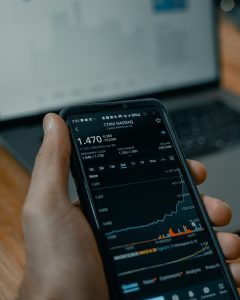Forex trading has become increasingly popular in recent years, with individuals from all walks of life looking to take advantage of the potential profits that can be made in the foreign exchange market. However, in order to trade successfully, it is essential to choose the right forex broker that meets your trading needs. With so many brokers available, it can be overwhelming to find the best one for you. In this article, we will guide you through the process of choosing the best forex broker for your trading needs.
Regulation and Security
The first and most important factor to consider when choosing a forex broker is regulation and security. Trading in the forex market involves the use of real money, so it is crucial to ensure that your funds are safe and protected. Always choose a broker that is regulated by a reputable financial authority, such as the Financial Conduct Authority (FCA) in the UK or the Securities and Exchange Commission (SEC) in the US. These regulatory bodies set strict rules and standards that brokers must adhere to, providing a higher level of security for traders.
Trading Platform
The next factor to consider is the trading platform offered by the broker. The trading platform is the software that you will use to execute your trades, so it is important that it is user-friendly and reliable. Look for a platform that offers a wide range of tools and features, such as real-time charts, technical indicators, and risk management tools. Additionally, make sure that the platform is compatible with your device, whether it be a desktop computer, laptop, or mobile phone.
Spreads and Commission
When trading forex, you will encounter two types of costs: spreads and commissions. Spreads are the difference between the buy and sell price of a currency pair and are typically measured in pips. Lower spreads mean lower trading costs, so it is important to choose a broker that offers competitive spreads. Additionally, some brokers charge a commission per trade, which can also impact your overall trading costs. Consider your trading style and frequency when choosing a broker with regards to spreads and commissions.
Leverage and Margin Requirements
Leverage allows traders to control larger positions with a smaller amount of capital. It can be a powerful tool for increasing profits, but it also comes with higher risks. Different brokers offer different leverage options, so it is important to choose a broker that offers leverage that aligns with your trading strategy and risk tolerance. Additionally, consider the margin requirements imposed by the broker. Margin requirements determine the amount of capital that you need to hold in your trading account in order to open and maintain positions. Higher margin requirements can limit your trading flexibility, so choose a broker that offers reasonable margin requirements.
Customer Support
Trading forex can be a complex and challenging endeavor, especially for beginners. Therefore, it is important to choose a broker that offers excellent customer support. Look for brokers that provide multiple channels of communication, such as live chat, email, and phone support. Additionally, consider the availability and responsiveness of their customer support team. It is always reassuring to know that you can reach out to a knowledgeable representative when you have questions or encounter issues with your trading account.
Educational Resources
A good forex broker should also provide educational resources to help traders improve their skills and knowledge. Look for brokers that offer educational materials such as webinars, tutorials, and trading guides. These resources can be invaluable, especially for beginners who are just starting out in the forex market. Some brokers even offer demo accounts, which allow traders to practice their strategies in a risk-free environment before trading with real money.
Conclusion
Choosing the best forex broker for your trading needs is a crucial step towards becoming a successful forex trader. Consider factors such as regulation and security, trading platform, spreads and commissions, leverage and margin requirements, customer support, and educational resources. Take the time to research and compare different brokers to find the one that best suits your trading style and preferences. Remember, a good broker can make a significant difference in your trading experience and ultimately, your success in the forex market.






